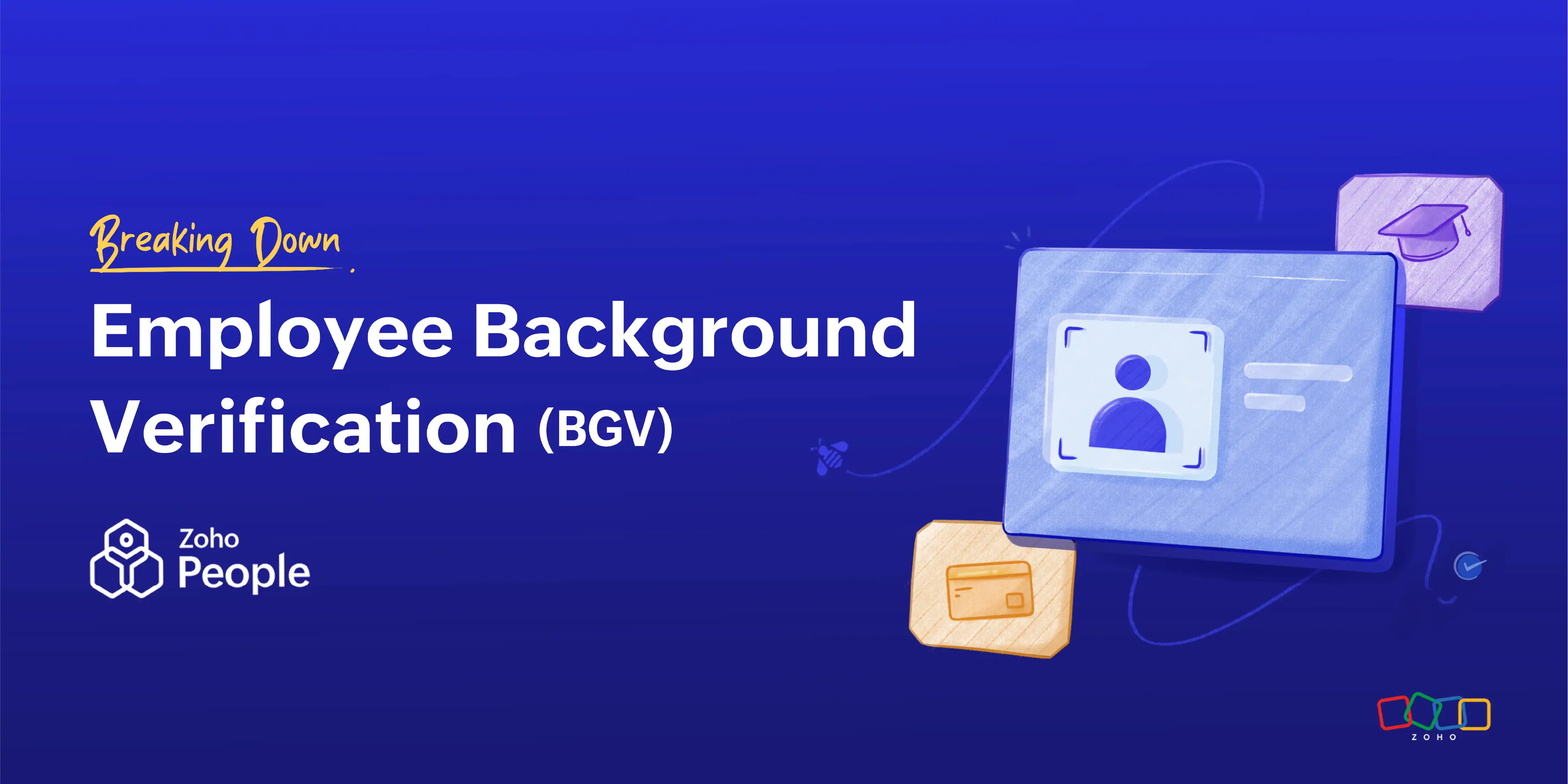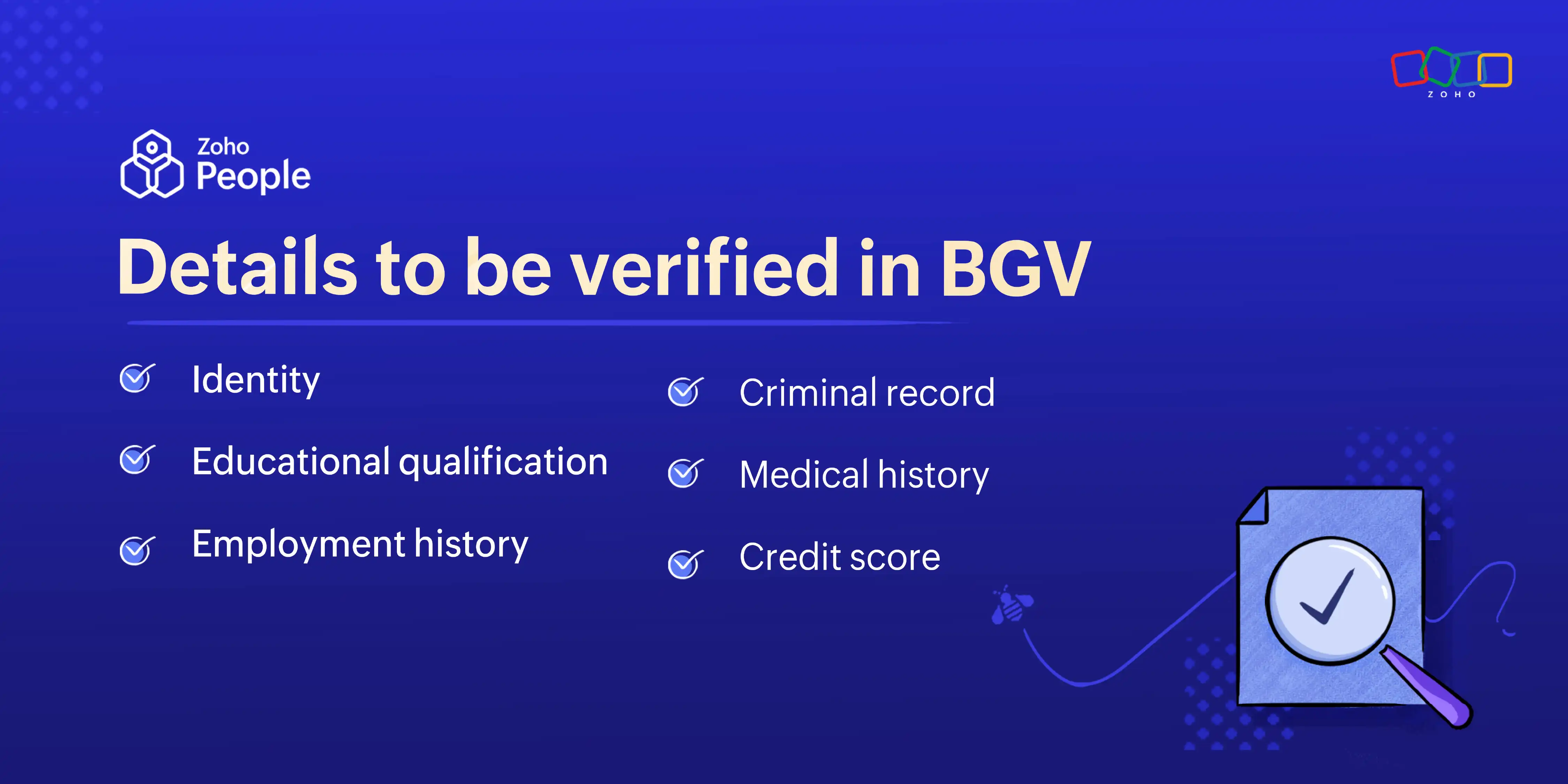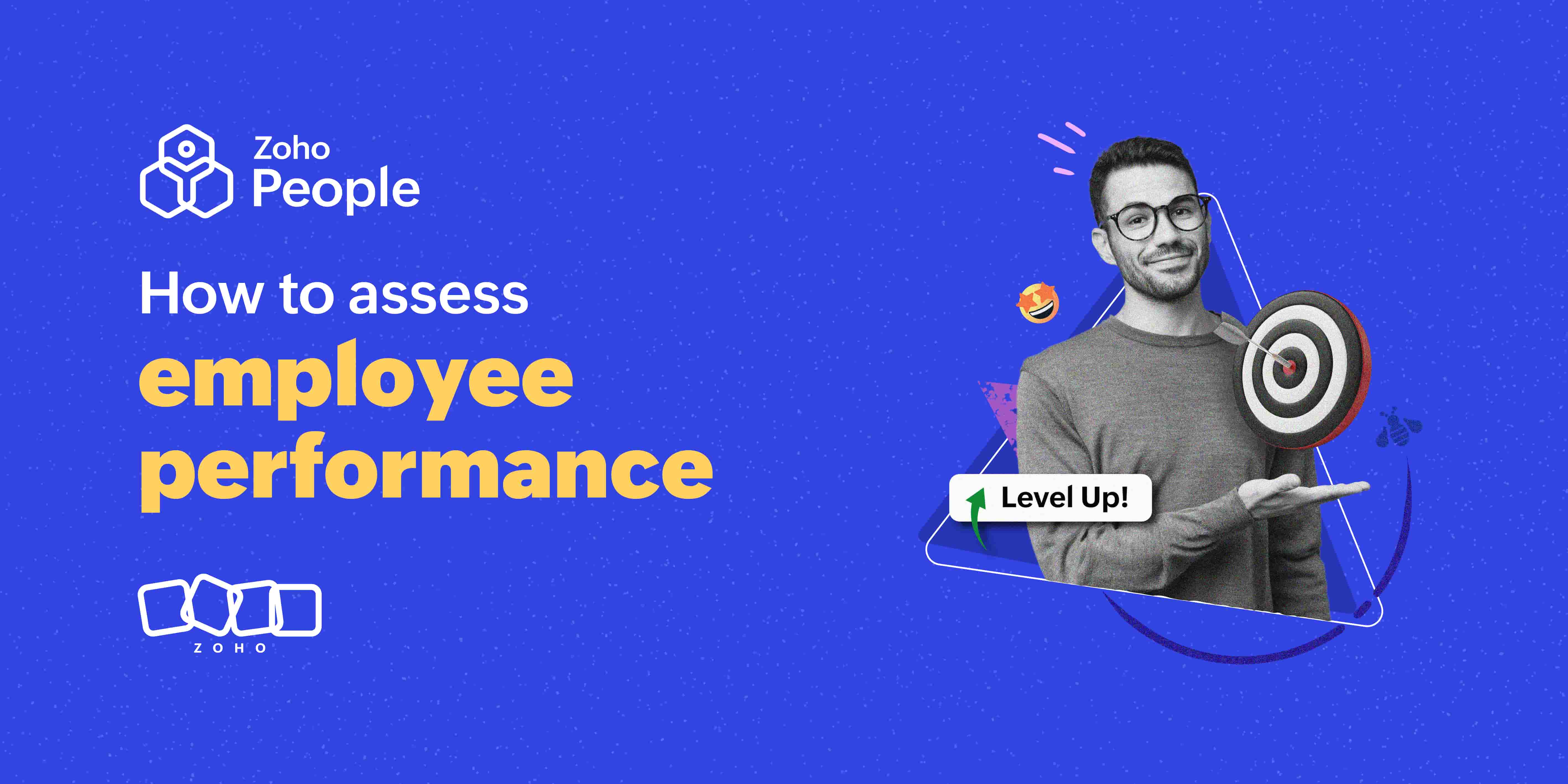- HOME
- HR insights
- Employee background verification: Everything you need to know about it
Employee background verification: Everything you need to know about it
- Last Updated : August 27, 2024
- 7.9K Views
- 5 Min Read

Nowadays, the recruiting process is costly, so hiring the right person for the role has to be efficient. But let's say that you're in a hurry to recruit, and you bypass the new-hire screening process; once you hire them, you may find they aren't actually qualified for the job. In order to avoid such circumstances, you must conduct a thorough background verification. This means background checks aren't just an option or formality but a necessity.
What is employee background verification?
Employee background verification is a process where the employer examines the candidate's history to confirm the accuracy of the details mentioned during the hiring process. That includes investigating their education, criminal records, and address records, as well as performing identity checks, credit score checks, and drug screenings.
Why should we conduct employee background verification?
Employee background verification is done to minimize hiring risks, verify the candidate's authenticity, and foster a safe and secure environment for other employees. Employers use these insights to influence the final hiring decision.
Foster a secure environment
To maintain a secure workplace, the vetting process is vital. By thoroughly digging into the candidate's history, employers can identify any potential risks associated with hiring individuals who may pose a threat to the organization or its employees. It also includes assessing criminal backgrounds, where past conduct could be revealed that may indicate harm to others or compromise the integrity of the work setup. A safe work environment is one that not only protects workers but also raises overall morale and productivity. Employees who feel safe are most likely to have an improved focus on their work.
Verifying the authenticity
One of the primary purposes of employee background verification is to confirm the accuracy of the information provided by candidates. Applicants occasionally exaggerate or may even be untruthful about qualifications, which can include previous educational achievements, work experience, and professional certifications. This can be detected through rigorous checks by the employer.
Background verification is important to be certain that the right people are hired for the job. If an organization hires people who have applied with false information, then it may develop a workforce with poor performance and low productivity. All of this can damage the image of the organization. By checking credentials, employers can make better hiring decisions and ensure competence and trustworthiness amongst the workforce.
Different modes of conducting employee background verification
The verification process may be conducted in two different ways, according to the preference of the organization.
In-house verification
Employers set up a separate HR department to conduct the verification process. When it's an in-house verification, the organization can collect the information that it thinks is important and necessary. This approach can be more cost-effective than outsourcing, as some organizations dedicate a separate HR department to this HR process. Organizations can customize the information they collect according to their preferences, and it remains confidential. On the other hand, handling a large volume of information can be overwhelming.
Third-party verification
Employers hire third-party agencies who are specialized and well-experienced to investigate extensive information. The time frame of the third-party agencies is the same as in-house verification, in that it depends on the extensiveness of the investigation process and the complexity of the data involved. Third-party agencies have access to a comprehensive database, meaning they may be able to uncover more information than an in-house team would.
If you're looking for a way to streamline the onboarding process and employee background verification, Zoho People has integrated with Verified First.
When is the right time to conduct employee background verification?
In some organizations, background checks are conducted before the onboarding process, which is when the candidate signs the offer letter and submits the documents that are required for the verification process. Background checks might take time depending on the data in the candidate's profile. If the new hire's documents are submitted after the onboarding process, background verification will likely be delayed. In that case, if something goes wrong in the screening process, their employment will be terminated immediately.
Data included in the background verification

The data included in background verification varies by sector, but screening generally verifies the following:
Identity: Name, address, date of birth, contact information, etc.
Educational qualification: Certificates, degrees, etc.
Employment history: Previous company name, reason for leaving, other employers
Criminal records: Violations and criminal history
Medical history: Drug screening, disability-related documents
Credit score: Credit history and any suspicious transactions
Process involved in employee background verification
Collection
Collect documents with the new hire's address, date of birth, contact information, educational history, previous organization details, etc. Give a heads-up to the employee before starting the screening process.
Verification
Conduct in-house verification or hire a third-party agency to check the accuracy of the new hire's information. This is done through phone calls, government databases, and in-person interviews.
Finalization
Create a document with the verified information. Highlight the key points, then identify any red flags. Review the details in the document and make a decision according to the job suitability.
Risks of not doing background verification
Bad hires can end up creating a mess that can lead to loss of productivity and time. In the end, you just have to start the recruiting process all over again. Sometimes, it might pose a threat to expose unverified hires to sensitive information.
Criminal records
Let's say a candidate has a fairly serious criminal record. If other employees become aware of this hire's criminal conviction, it could lead them to worry about their own security or privacy. Despite the implementation of retention strategies, the employee turnover rate may increase.
Moreover, if issues crop up because of that person, the organization will be held accountable for it, which will end up damaging the organization's reputation.
Fraud and impersonation
Hiring individuals without proper background checks increases the risk of fraud and impersonation. If a candidate misrepresents their qualifications or identity, they may gain access to sensitive information or resources, leading to potential financial losses or data breaches. This can have severe implications, including theft of company assets or confidential client information. Organizations may also face reputational damage if clients or partners discover that they have been deceived by an employee, leading to loss of trust and future business opportunities.
Loss of productivity
A bad hire can significantly hinder overall productivity within the organization. If an employee lacks the necessary skills or motivation, they may require constant supervision and additional training, diverting resources from other critical tasks. Furthermore, if team members have to compensate for the under-performance of a new hire, this can lead to employee burnout and decreased morale.
Wrapping up
Spending time and resources in conducting an employee background verification helps your organization in the long run. It reduces associated risks and ensures a secure environment where employees can feel safe and contribute their best. While conducting background checks, choosing the appropriate methods for your organization will help you customize the approach to fit your specific needs.



